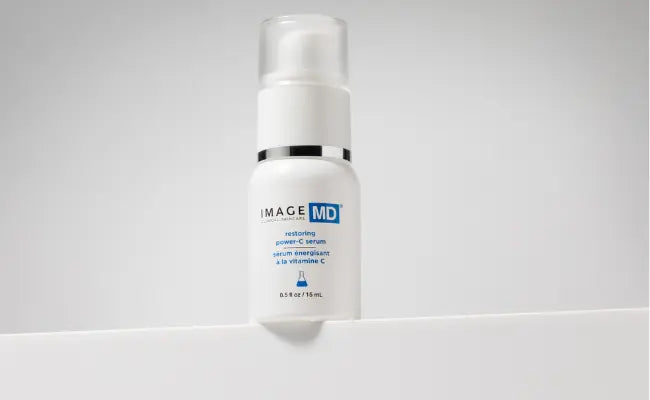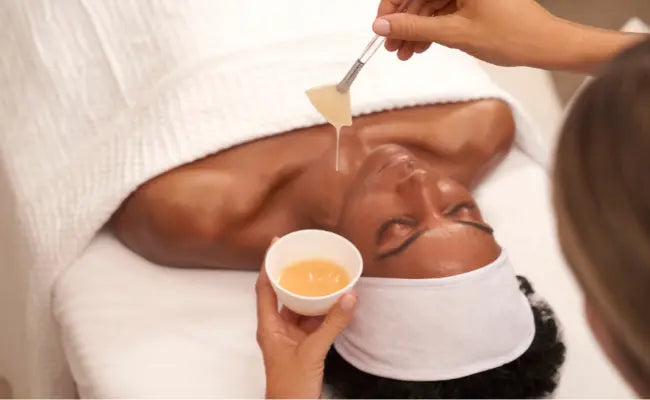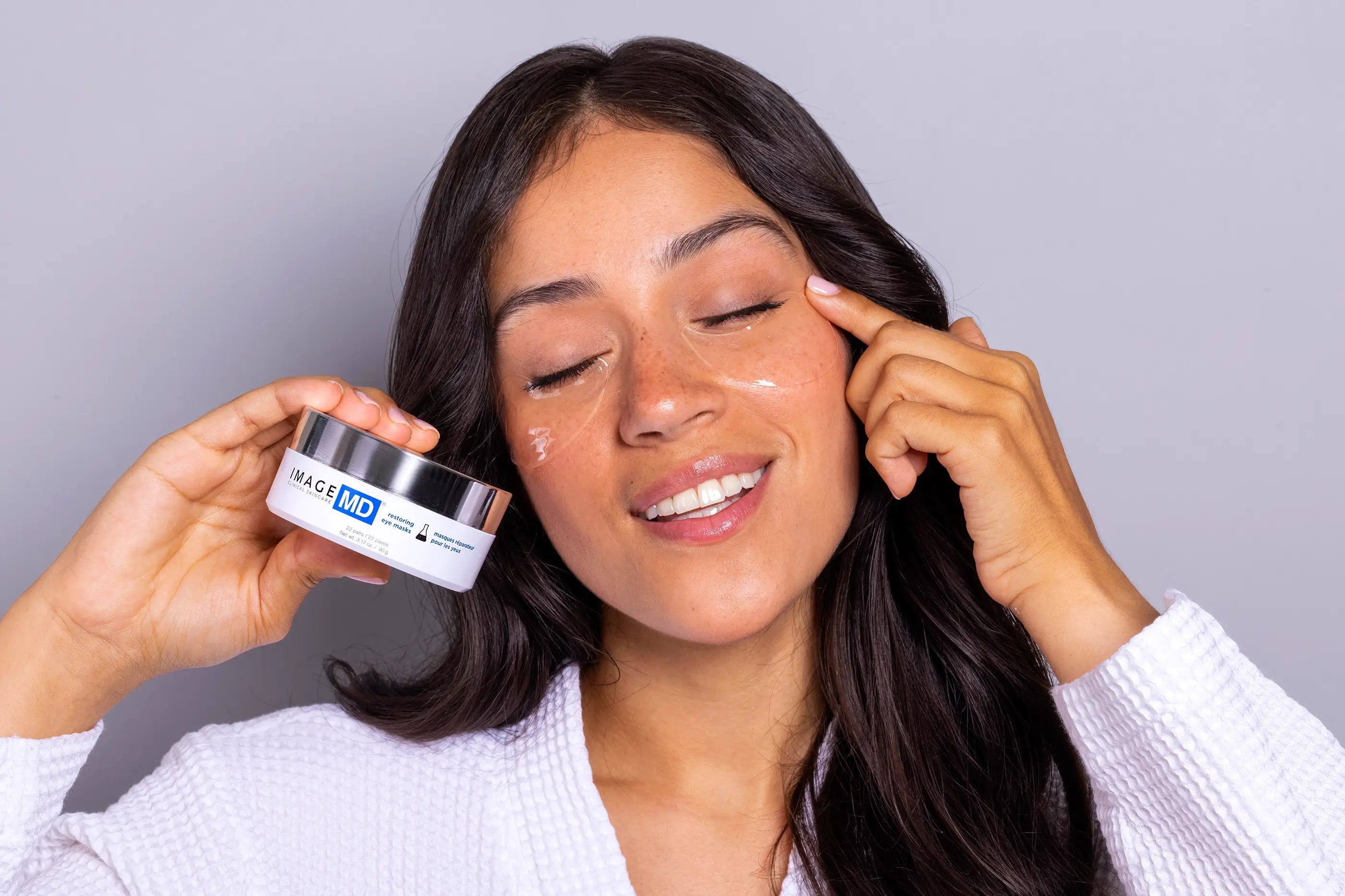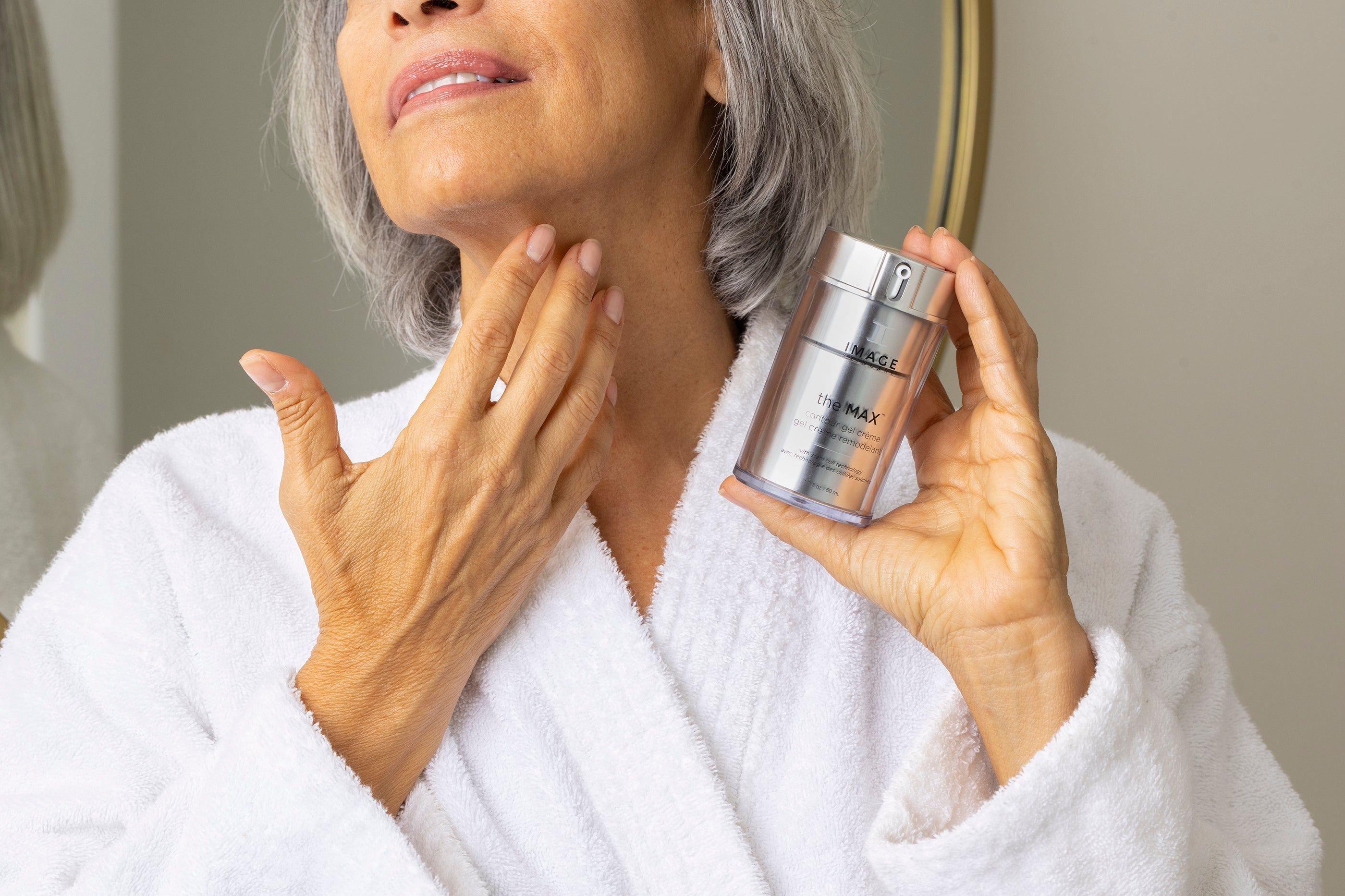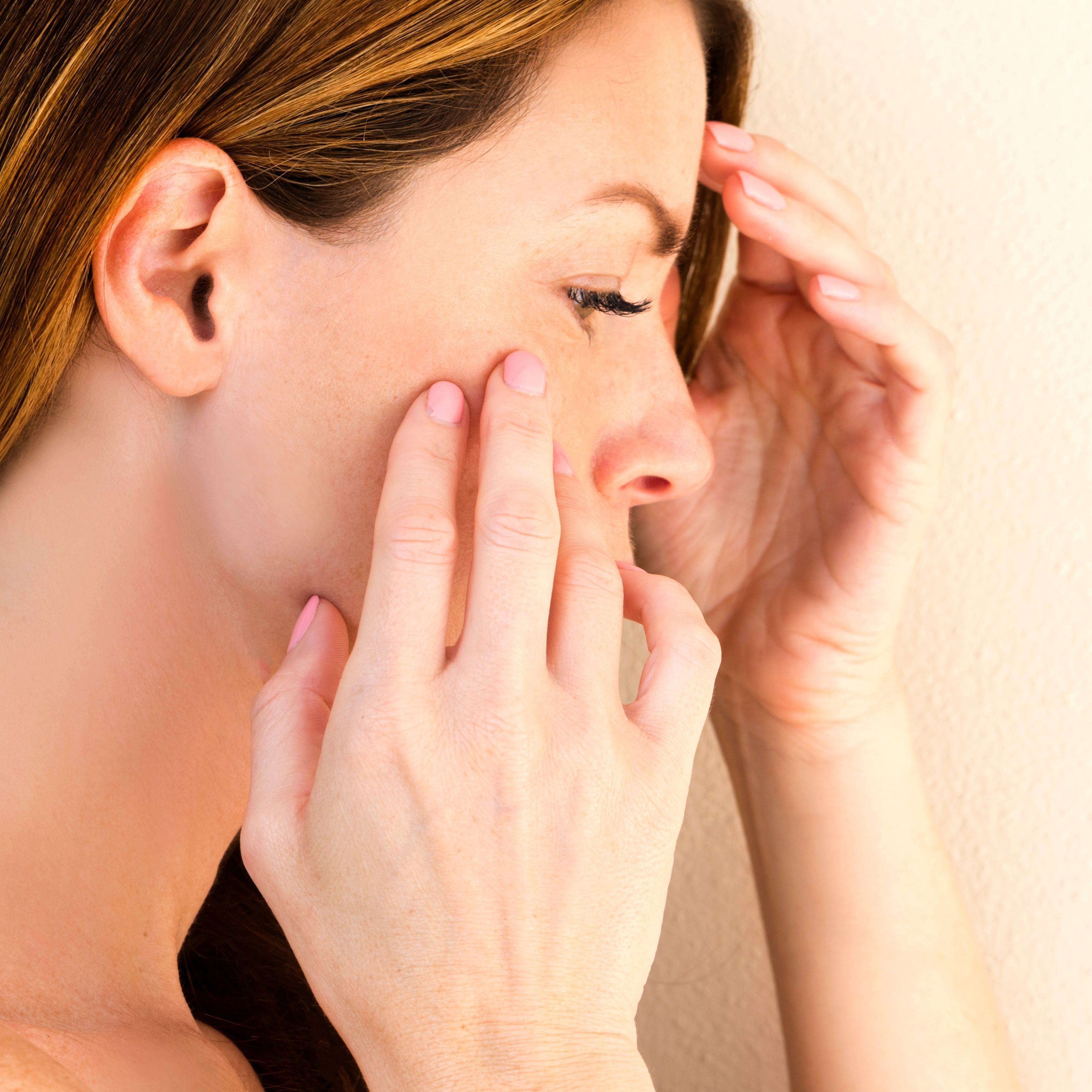
How to Properly Layer Your Skincare Products
As with baking or painting, throwing a bunch of ingredients or colors together without doing so strategically won’t get you the outcome you want. Skin care is the same. When you learn how to layer and mix your skincare products the right way, you’ll be sure your skin drinks up maximum benefits for glowing results.
The many options you have might seem overwhelming, but it’s actually quite simple. We’re here to break it down for you.
RULE OF THUMB: THE MOST IMPORTANT THING TO REMEMBER IS TO LAYER YOUR SKIN CARE FROM THINNEST TO THICKEST CONSISTENCY.
Why? Skincare formulas with the smallest molecules, like those in toners and water-based serums, need to go first since they penetrate your skin more easily. That way, you prevent larger-molecule skin care from “blocking” other layers of skin care from penetrating your skin. With this in mind, your skincare regimen should go in this order:
1. CLEANSER
We all know cleansing comes first, but it’s worth noting if you are a fan of double-cleansing popularized by K-beauty rituals (cleansing and rinsing twice), the rule is inversed: start with your thick (oil) cleanser, then finish with your thinner cleanser, which typically comes in cream, gel or foam form.
The main task of cleansers is to remove surface impurities, dirt, and other build ups. Dead skin cells and excess oil can also build up on the surface of your skin over time, which can lead to acne and other skin issues if left uncleansed.
Foam cleansers are the lightest options and will foam into a nice lather on your skin. They are the number one choice for combination skin and are effective at cleansing away excess surface oils that can lead to acne and other inflammation.
Gel cleansers are heavier than foams, but not as thick as cream cleansers. They are made to penetrate deeper into your skin to cleanse away impurities in your pores. Gel cleansers commonly have microbeads to produce a gentle exfoliation action, and are the best choice for highly acne-prone skin.
Creams are the thickest option and can bring advanced moisturizing along with cleansing properties. They are ideal for dry skin, as well as sensitive skin and are made to target excess oils that build up on the surface of your face, as well as in your pores.
Example for Sensitive Skin: Wash away impurities without disrupting the delicate skin barrier with the MAX facial cleanser and its blend of plant extracts, polypeptide complex, and naturally soothing oat kernel extract to help reduce redness and inflammation.

Or if your skin is extra irritated or red, use ORMEDIC balancing facial cleanser with its rich and soothing aloe vera extract, the organic blend of botanicals, and the addition of moisturizing glycerin.

2. EXFOLIATOR AND/OR MASK
Whether you choose to exfoliate weekly or a few times per week, polishing your face is the next logical step. After cleansing and/or exfoliating is the best time to luxuriate in your favorite mask.
Exfoliation is specifically to remove dead skin cells that have collected on your skin. Normally, your skin will shed and replenish its cells every 30-40 days but regular exfoliation can help speed up this process.
Example for Sensitive Skin: Exfoliate with ILUMA intense brightening exfoliating powder and follow up with the ORMEDIC balancing gel masque if you’re experiencing redness, either the VITAL C hydrating enzyme masque or the AGELESS total resurfacing masque for brightening.
3. TONERS AND MISTS
Toners, mists, pre-moistened pads, essences or other watery liquid skincare formulas are the first product you apply that doesn’t get rinsed off. Apply while your skin is still damp from rinsing so it can absorb the ingredients more efficiently.
The main benefit of a toner and mist is to help balance your skin’s pH. An imbalance in pH can cause your natural oil production to get out of whack which, in turn, can create oily skin or dry skin. Toner can help remove excess oil, but won’t overly dry your skin since it also includes hydrating peptides.
4. SPOT TREAT
If you keep a spot treatment on deck to zap those occasional blemishes, dab it on right after toning. Massage it in and let it sit for a moment before moving on to the next steps in the layering process. You’ll most likely have a spot treatment in cream, gel, or serum formulations.
In addition to cream, gel, and serum spot treatments, you can consider using masks for quick touch-ups in the morning or evening. Spot treatments are great for reducing the appearance of a range of different skin blemishes such as sun spots, age spots, dark spots, hyperpigmentation, and general uneven skin tone.
For skin suffering from a pH imbalance or lack of nourishment, our I MASK purifying probiotic mask can help restore hydration, reduce dullness, and fortify your skin’s natural antioxidants. The inclusion of green clay and charcoal helps remove impurities and detoxify your skin, while also leaving it feeling smooth and clean.
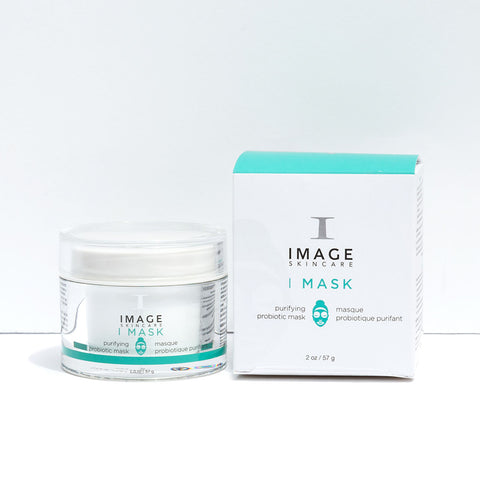
If you are spot treating for dryness, our I MASK firming transformation mask can rehydrate your skin with a blend of hyaluronic acid and botanical extracts. You’ll not only get a boost of moisture, but will also be able to coat your skin in clay and jojoba beads for tightening and toning to leave you skin feeling plump and smooth.

5. SERUM
Serums do the heavy lifting when it comes to correcting specific skin concerns since they contain the highest concentration of active ingredients that target anti-aging or acne, hyperpigmentation, sensitivity or dryness issues. They also usually contain potent antioxidants to fight free radical damage, one of the most important ways to slow down the manifestation of aging.
The beauty of serums is they’re highly customizable. You can change them out to tailor to your needs. For instance, if you’re breaking out one week, you can use a serum that targets breakouts, then switch over to a brightening serum such as our IMAGE MD restoring power-C serum if you’ve spent too much time in the sun or your complexion appears lackluster.

On top of that, you can boost your serum by mixing others into them—as long as they are compatible. (Generally speaking, you want to avoid mixing two active ingredients together, such as retinol, vitamin C, hydroxy acids, as the combination might cause irritation). One of the best ways to boost any serum is by adding hyaluronic acid, a substance that can hold 1,000 times its own weight in water, for a refreshing dose of hydration.
Example for Sensitive Skin: Serum – Mix ORMEDIC balancing antioxidant serum with two drops of our VITAL C hydrating ACE serum or our AGELESS total pure hyaluronic filler.
6. EYE CREAM
Most people think eye creams are the final step, but remember the rule of consistency: since eye creams are thinner in texture than moisturizers, they go on before. You want to minimize the risk of layering moisturizer under your eyes, allowing it to obstruct penetration from your eye cream.
In addition to a cream, you can opt for an IMAGE MD restoring eye mask instead. It targets the areas around tired eyes to help reduce the signs of fatigue while refreshing and soothing the layers of skins with a cooling hydro-gel formula.

7. MOISTURIZER (NIGHT AND/OR DAY)
An important role your moisturizer plays is to “lock in” everything you just diligently applied and prevent moisture from evaporating from your skin, keeping it balanced and supple throughout the day.
Moisturizers can come as a soothing lotion, emulsified cream, or emollient infused balm. While some of the previous steps penetrated deep into the skin, moisturizers are much heavier and will normally sit on top of the skin to lock in everything below.
Having the right moisturizer, such as our VITAL C hydrating enzyme masque can be a great way to restore hydration to the top layers of skin. In addition to restoring hydration, the enzyme masque protects from external damage while locking in nutrients and moisture.

Example for Sensitive Skin: In the evening, apply ORMEDIC balancing bio-peptide crème. If you’re dehydrated or dry, use it in the morning as well for a double burst of peptides and balanced hydration.
8. OIL (NIGHT AND/OR DAY)
For an instant glow or extra moisture for dry areas, oils go on last since they can penetrate all other formulas, but not vice versa.
Example for Sensitive Skin: For a daytime luminosity, dab VITAL C hydrating facial oil to cheekbones. In the evening, apply a bit more on dry spots, such as forehead, nose and cheeks.

9. SUNSCREEN (DAY ONLY)
Sunscreen is always the final step of skincare layering during the day. Again, don’t allow an oil or moisturizer to block the active ingredients from doing their job. Remember, Image Skincare’s DAILY PREVENTION line of facial sunscreens also double as moisturizers, so unless you’re especially dry or dehydrated you may want to skip the moisturizer and oil during the day.




